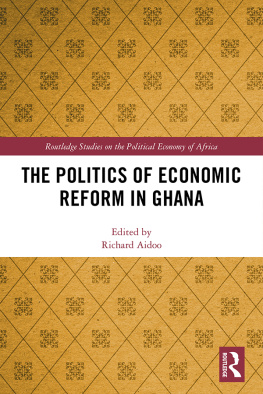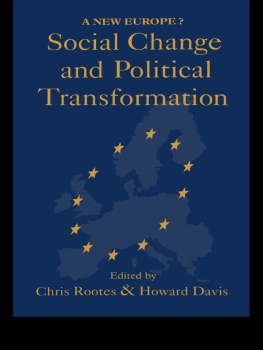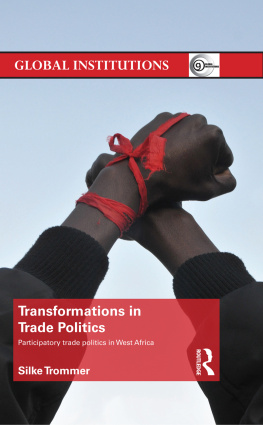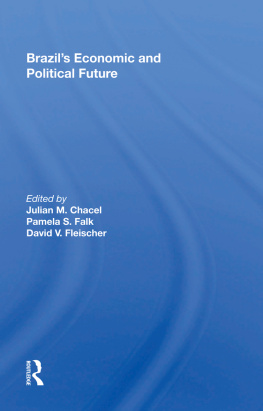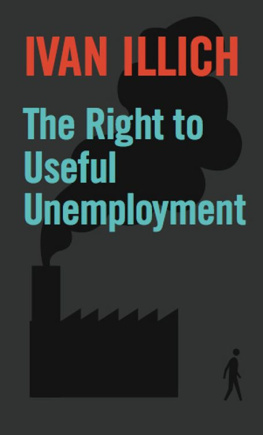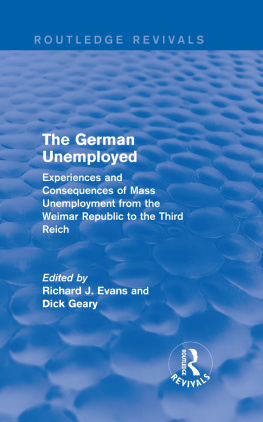First published 2004 by Ashgate Publishing
Reissued 2018 by Routledge
2 Park Square, Milton Park, Abingdon, Oxon OX14 4RN
711 Third Avenue, New York, NY 10017, USA
Routledge is an imprint of the Taylor & Francis Group, an informa business
Phineas Baxandall 2004
Phineas Baxandall has asserted his right under the Copyright, Designs and Patents Act, 1988, to be identified as the author of this work.
All rights reserved. No part of this book may be reprinted or reproduced or utilised in any form or by any electronic, mechanical, or other means, now known or hereafter invented, including photocopying and recording, or in any information storage or retrieval system, without permission in writing from the publishers.
A Library of Congress record exists under LC control number: 2004041106
Notice:
Product or corporate names may be trademarks or registered trademarks, and are used only for identification and explanation without intent to infringe.
Publisher's Note
The publisher has gone to great lengths to ensure the quality of this reprint but points out that some imperfections in the original copies may be apparent.
Disclaimer
The publisher has made every effort to trace copyright holders and welcomes correspondence from those they have been unable to contact.
ISBN 13: 978-0-815-38815-9 (hbk)
ISBN 13: 978-1-351-16132-9 (ebk)
Chapter 1
Changing Meanings of Unemployment
Most citizens in Hungary had not heard the word "unemployment" associated with their own country for decades, if ever. The unemployment line seemed a distant icon evoked by the government to tout its past accomplishments. The right to work stood as a pillar of legitimacy, an unshakable commitment enshrined in the Hungarian constitution. People therefore took notice in 1987 when the government introduced social programs for the newly "unemployed". The national newspapers carried long articles about the unprecedented changes, and the international press buzzed with dumbfounded incomprehension.
The foreign newspapers failed to understand how the earlier taboo against unemployment had already transformed. Yes, the word "unemployment" was new in the Hungarian mass media. But elite policy circles had long advocated lay-offs. The traditional commitment to full employment had been publicly redefined to include job loss. The meaning of "unemployment" had shifted many times over the previous decades and would change yet again under post-communism.
The Big Picture
Reconstruction of the meaning of unemployment is not unique to former-communist countries. On the contrary, unemployment has been reinvented numerous times in the West, and its meaning continues to change. Scholars, journalists, and policy-makers have struggled to ascertain what unemployment rate is politically sustainable, or why unemployment seems more politically acceptable in some places or times than others.
The concept of unemployment is in flux. We knew when the post-war steelworker was unemployed, and that this was politically destabilizing; but it is not at all clear how we should apply these categories to today's Internet consultant, temp-worker, or independent sub-contractor. The future political economy of unemployment will depend very much on the changing world of work and how it is regulated.
This book is an attempt to understand how and why the meaning of unemployment changes. It examines how governments reshape the meaning of unemployment through policies and public declarations and how it is often in their interest to do so. Unemployment may become more or less dangerous to those in power. And certain kinds of joblessness are more politically dangerous than others.
This research treats the category of unemployment as a social and institutional construction. The aim is to understand the causes and consequences of differences in how people understand unemployment. Focusing on how people actually understand unemployment might seem like an obvious place to start; but it is a break with the general tendency to take unemployment as an unchanging and universal category.
Scholars and other analysts typically ignore differences in how people "on the ground" view unemployment. Instead they begin with a universal definition that can be applied to different places or time periods. A fixed yardstick makes it possible to ascertain, for instance, whether or not the unemployment rate in contemporary South Africa is higher than the United States during the Depression. But the presumed equivalence in the concept of unemployment limits the ability of comparative analysis to explain political changes that transform its meaning.
Unemployment tends to be seen through an economistic lens. Politics is not seen as playing a constructive or constitutive role. Instead politics is portrayed as interfering with the market processes that would otherwise drive joblessness down to a natural frictional minimum. This view interprets political arrangements as hindering the market dictates of deregulation, liberalization and welfare-state retrenchment. Thus, no consideration is given to whether or not the political threat of unemployment changes in different contexts. Much historical research has historicized our understanding of the category of unemployment by showing how it was an invented category that arose alongside industrialization. But there has been no attempt to extend such insights to ongoing reconstructions of unemployment in already-industrialized countries.
The following pages are both an in-depth study of the reinvention of unemployment, as well as a broader inquiry into the politics of joblessness and the social construction of constraints on policy-making. The American and West European cases provide the original inspiration and insight for this analysis. Meanwhile, the bulk of original empirical research is presented in the Hungarian case.
The Argument
Unemployment is a socially-constructed benchmark used for evaluating the competency of economic rule. In different places and in different times the category of "unemployment" has included different kinds of joblessness and excluded others. It has implied different kinds of commitments or accountability by the state.
New meanings of unemployment are more than a byproduct of economic change. They are the result of changing politics and changing policy. Governments make commitments and build institutions that reconstruct the political meaning of unemployment. When governments change the policies regulating employment and unemployment, they also redefine their own accountability by reshaping the lens through which the public evaluates their stewardship of the economy.
Particularly important are policies that distinguish employment from other forms of less-officially recognized work. Gardening, child care, volunteering, black-marketeering and many other forms of paid work are not fully recognized as employment in governmental policies and statistics. In other words, not all work is recognized as employment. Likewise, not all lack of work counts as unemployment.


